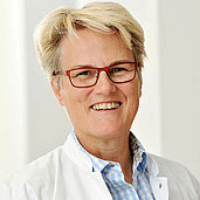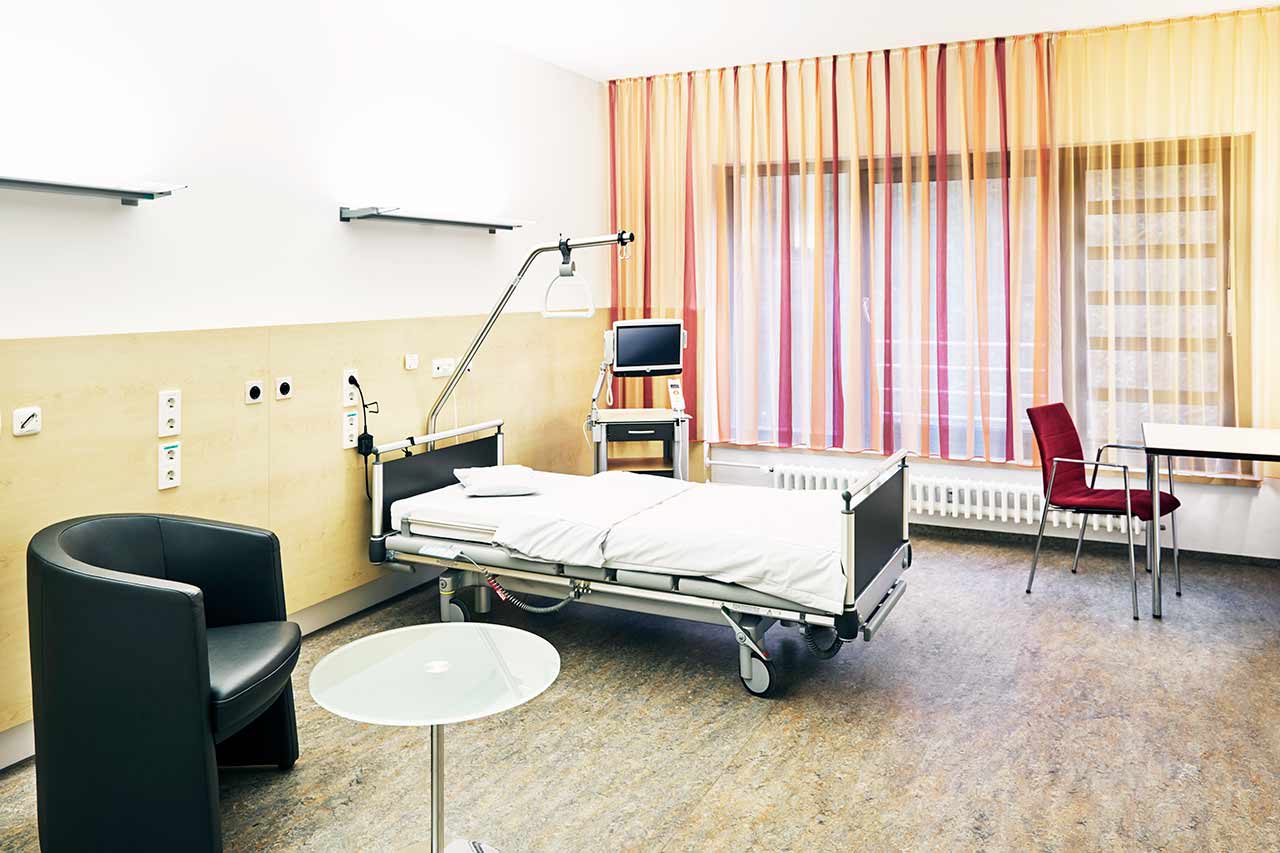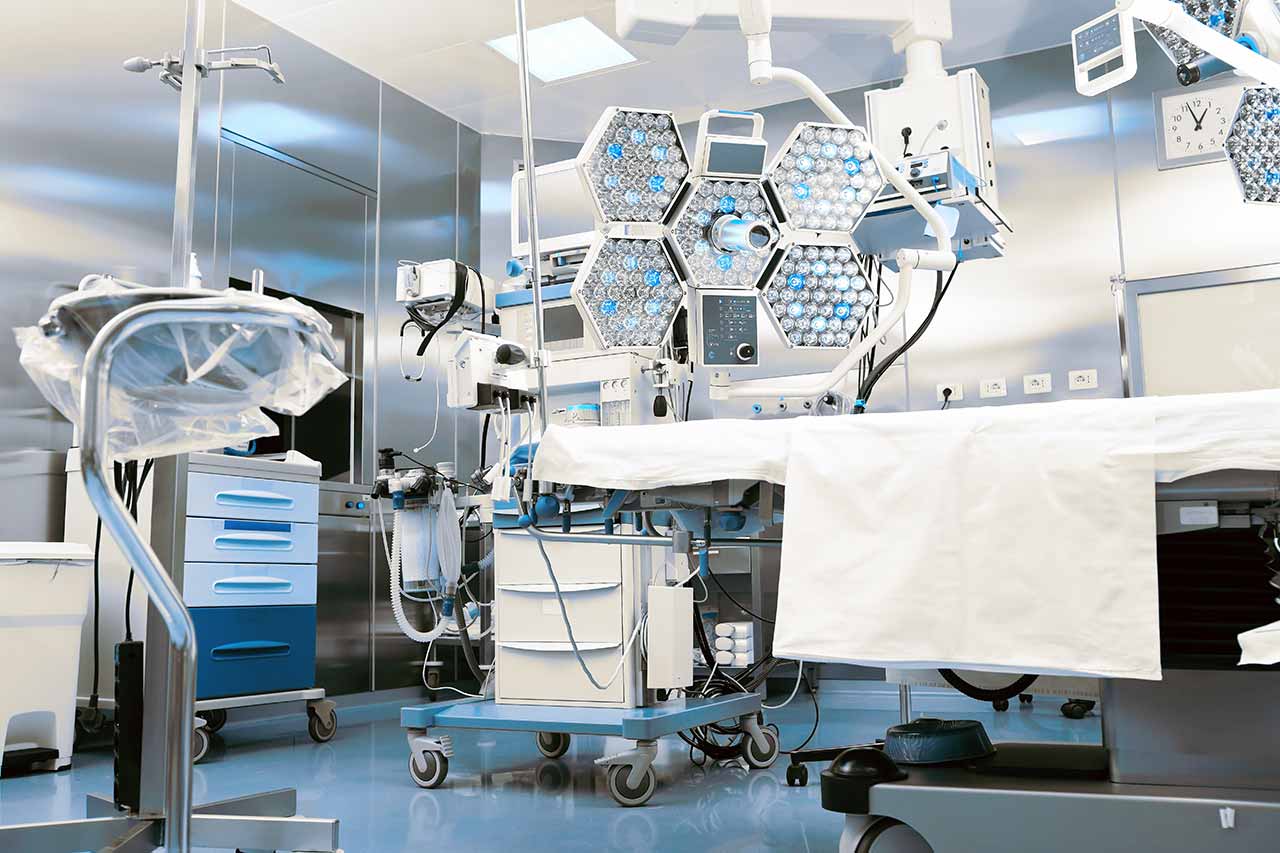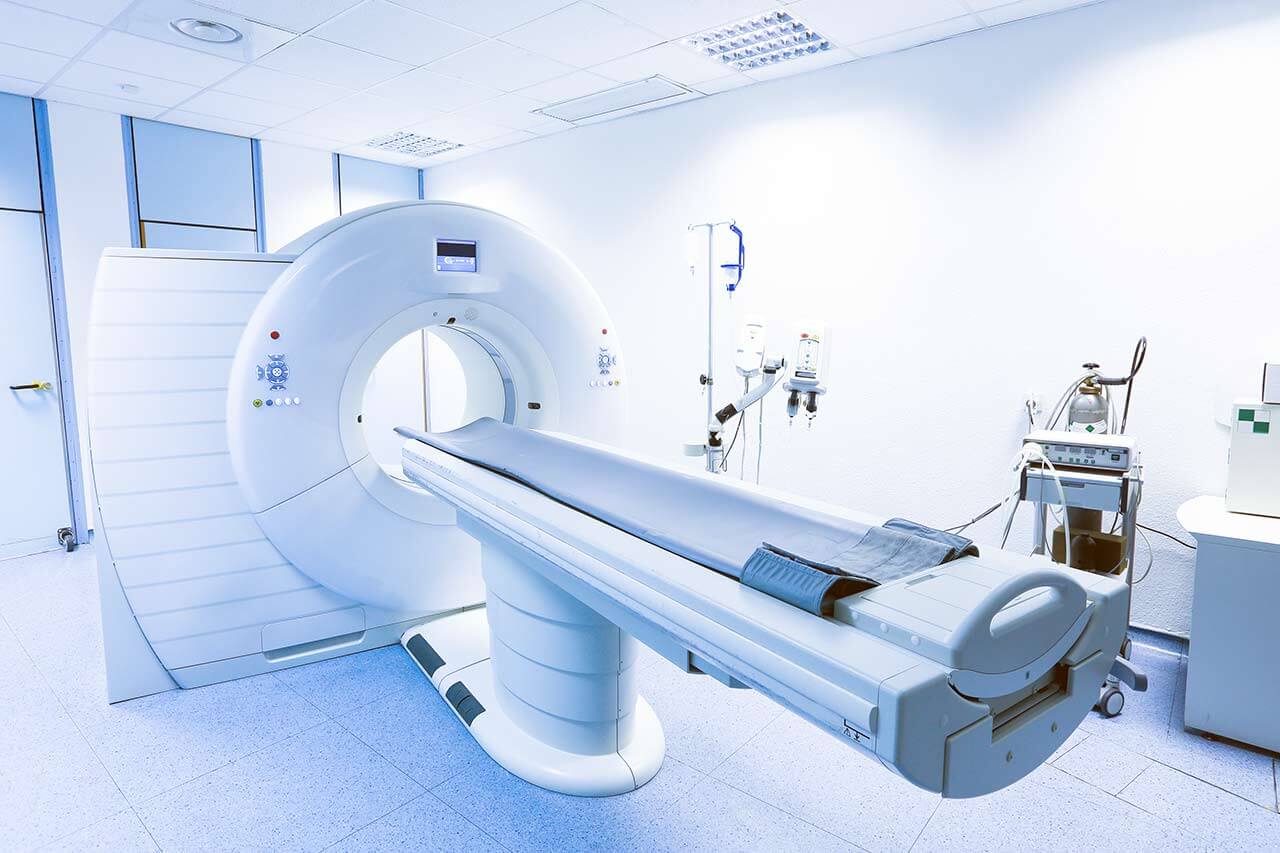
The program includes:
- Initial presentation in the clinic
- clinical history taking
- physical examination
- review of medical records
- laboratory tests:
- complete blood count
- general urine analysis
- biochemical analysis of blood
- indicators of inflammation
- indicators blood coagulation
- general otolaryngological examination
- diagnostic tympanometry and audiometry
- preparation according to preoperative standard
- tympanic drainage procedure
- symptomatic treatment
- control examinations
- cost of essential medicines and materials
- nursing services
- full hospital accommodation
- explanation of future recommendations
Required documents
- Medical records
- Audiometry, tympanometry (if available)
- Temporal bone CT scan (if available)
Service
You may also book:
 BookingHealth Price from:
BookingHealth Price from:
About the department
The Department of Adult and Pediatric Otolaryngology, Head and Neck Surgery at the Hospital Kassel provides the prevention, diagnostics and treatment of any ENT diseases in patients of all age groups. The service range is complemented by competent medical care for patients with benign and malignant head and neck tumors. The patients with hearing loss and severe hearing impairment are offered cochlear implantation. The department also includes the specialized Skull Base Surgery Center, whose specialists perform surgical treatment of various injuries and inflammatory lesions in this area, malformations and tumors. Most ENT surgical procedures are performed using minimally invasive and endoscopic surgical techniques, which are the gold standard of modern surgery. The department provides both inpatient and outpatient medical care. The department is one of the largest ENT centers in Lower Saxony and Hesse, as well as one of the best in Germany. The Chief Physician of the department is Prof. Dr. med. Ulrike Bockmühl.
The department treats many patients with severe hearing impairment and hearing loss. To restore hearing, patients are offered classical hearing aids, implantable hearing aids and cochlear implantation. The department's ENT doctors implant such modern implantable hearing aids as Vibrant Soundbridge®, CARINA®, BAHA® and Bonebridge®. These hearing aids are the best in the global medical arena. The difference between them is only in the type of implantation (partial or total) and some technical nuances. The most appropriate type of hearing aid is selected according to the particular clinical indications. After implanting the hearing aids, the attending physician performs special programming in order to adapt the signal processing to the individual needs of the patient. The department also specializes in cochlear implantation in adults and children, which today is a breakthrough in the treatment of severe hearing loss and total deafness. A cochlear implant consists of two components – an internal one (a cochlear implant itself), which is installed during the operation, and an external one (speech processor), which is connected 3-4 weeks after surgery. The external mechanism of the implant collects, analyzes, encodes and transmits auditory information to the internal components of the prosthesis, which, in turn, receive, decode and transmit auditory information to the auditory nerve. The decision on cochlear implantation is made on the basis of comprehensive diagnostics, including the study of the patient's medical history, clinical examination, tone and speech audiometry, tympanometry, assessment of the stapedial reflex, otoacoustic emission, balance diagnostics, as well as BERA test, speech audiometry, CT and MRI scanning. The duration of the operation for cochlear implantation is about 2 hours. The period of postoperative hospitalization is 3-5 days. About 4 weeks after the operation, the patient undergoes a special hearing and speech rehabilitation, the duration of which is several months.
The priority focus of the department's medical team is on the treatment of head and neck malignancies, such as lip cancer, oral cancer, oropharyngeal cancer, pharyngeal cancer, laryngeal cancer, nasopharyngeal cancer, salivary gland cancer, facial skin cancer, etc. The treatment is based on an interdisciplinary approach, and therefore the specialists from all related medical fields are involved in the therapeutic process. The diagnostic and therapeutic procedures are performed in strict accordance with the recommendations of the German Cancer Society and the German Society of Otorhinolaryngology, Head and Neck Surgery. Prior to using a certain treatment regimen, the patient undergoes a clinical examination, imaging tests – ultrasound, CT, MRI, PET-CT, scintigraphy (depending on the patient's complaints and symptoms), panendoscopy of the upper gastrointestinal tract and biopsy with further histological examination. The diagnostic results allow the doctors to accurately determine the type of tumor and its stage, which affects the choice of the optimal treatment regimen. The department's therapeutic options for head and neck malignancies include surgical tumor resection, radiation therapy, chemotherapy, combined chemoradiotherapy, immunotherapy, antibody therapy, pain therapy and diet therapy. Psycho-oncological care is also an important component of treatment. The optimal treatment regimen is developed for each patient individually at the interdisciplinary tumor boards. Upon completion of treatment, the patient must regularly undergo check-up examinations in order to avoid a recurrence of the pathology or its early detection.
The department also specializes in skull base surgery. In 2010, the medical facility was certified by the German Society for Skull Base Surgery as a specialized center. It deals with the treatment of various skull base pathologies – from congenital and acquired malformations, trauma and inflammatory diseases to benign and malignant tumors. Ophthalmologists, neurosurgeons and maxillofacial surgeons are often involved in the diagnostics and treatment of patients with pathological changes in the skull base. When performing skull base surgery, the department's specialists use state-of-the-art technical equipment, including endoscopes, surgical microscopes, intraoperative navigation systems, neuromonitoring, etc. Such an approach guarantees maximum safety of the surgical treatment without damaging vital anatomical structures and healthy tissues not affected by the pathological process.
The department's main clinical focuses include:
- Ear surgery to treat conductive, sensorineural and mixed hearing loss
- Tympanoplasty
- Stapedoplasty
- Drainage of the tympanic cavity in the case of exudative otitis media
- Cochlear implantation in adults and children
- Placement of partially and totally implantable hearing aids, including bone conduction hearing aids (Vibrant Soundbridge®, CARINA®, BAHA® and Bonebridge®)
- Conservative and surgical treatment of head and neck tumors in adults and children, including larynx preservation laser endolaryngeal operations
- Lip cancer
- Oral cavity cancer
- Oropharyngeal cancer
- Pharyngeal cancer
- Laryngeal cancer
- Nasopharyngeal cancer
- Salivary gland cancer
- Cancer of unknown primary
- Malignant tumors of the external nose and paranasal sinuses
- Malignant tumors of the outer and inner ear
- Malignant tumors of the scalp and neck skin
- Surgical tumor resection
- Radiation therapy
- Chemotherapy
- Combined chemoradiotherapy
- Immunotherapy
- Antibody therapy
- Pain therapy
- Diet therapy
- Psycho-oncological care
- Endonasal endoscopic and microscopic operations on the paranasal sinuses
- Endoscopic and minimally invasive skull base surgery (in collaboration with the Departments of Neurosurgery, Oral and Maxillofacial Surgery, Ophthalmology)
- Parotid surgery, including facial nerve repair
- Aesthetic and reconstructive plastic surgery on the face and neck, including interventions on the internal and external nose
- Endoscopic operations on the tear ducts
- Orbital surgery (for example, surgery for endocrine orbitopathy)
- Operations on the vocal cords to preserve or improve the voice
- Surgery for tracheal stenosis in adults and children
- Surgery for snoring and obstructive sleep apnea
- Surgery in children (for example, removal of tonsils and polyps, surgery for malformations, cochlear implantation to restore hearing in the case of hearing loss)
- Other medical services
Curriculum vitae
Prof. Dr. med. Ulrike Bockmühl is the Chief Physician of the Department of Adult and Pediatric Otolaryngology, Head and Neck Surgery at the Hospital Kassel. From 1996 to 1997, she completed an internship at a laboratory in Pittsburgh, USA. In 2000, Dr. Ulrike Bockmühl received the Anton von Tröltzsch Prize, which is the highest award of the German Society of Otorhinolaryngology, Head and Neck Surgery. In 2001, the specialist worked as the Senior Physician in the Department of Adult and Pediatric Otolaryngology, Head and Neck Surgery, Facial Plastic Surgery at the Charite University Hospital Berlin, which ranks among the best medical facilities in Europe. In addition to clinical practice at the hospital, Dr. Ulrike Bockmühl studied the genetic characteristics of malignant head and neck tumors for 10 years in collaboration with the Institute of Pathology at the Charite University Hospital Berlin. Throughout her career, Prof. Ulrike Bockmühl has spoken on over 100 lectures and courses for medical students around the world.
Photo of the doctor: (c) Klinikum Kassel
About hospital
The Hospital Kassel is a progressive medical facility with a huge medical team, which provides high-quality medical services in all branches of modern medicine. The hospital is part of the regional medical Gesundheit Nordhessen Holding, which unites 5 top-class medical centers, including specialized rehabilitation clinics. With 1,281 beds, the hospital is known as the largest medical complex in the federal state of Hesse. The hospital has 32 specialized departments with highly qualified doctors and specially trained nursing staff in each department. The team of 3,200 employees takes care of the health of patients. The main value for each employee is the patient's health. The professional skills of the medical staff in combination with state-of-the-art medical and technical equipment of the hospital provide excellent opportunities for the treatment of patients with pathologies of any severity.
The hospital provides treatment to over 55,000 inpatients and about 140,000 outpatients every year. Medical care is provided to both German citizens and many patients from foreign countries. Such high rates are the evidence of excellent quality of medical services and the high credit of patients' trust.
The hospital has created a wonderful atmosphere, which contributes to the rapid recovery of patients. All diagnostic and therapeutic rooms, operating rooms, as well as patient rooms are designed taking into account modern standards of European medicine in order to ensure maximum comfort of each patient. All employees working in the hospital provide the patient with understanding and respect, as well as support him in every possible way during the entire therapeutic process.
The hospital successfully implements a quality management system. It uses its own quality management system implemented by the medical Gesundheit Nordhessen Holding, as well as the IQM (Initiative Qualitätsmedizin) monitoring system. As part of healthcare quality management, the hospital annually clearly provides reports on its clinical activities, the success of diagnostics, treatment, level of patient care, etc. Thus, the hospital stands for maximum openness in its work and makes every effort to maintain the highest level of quality of medical care.
Photo: (с) depositphotos
Accommodation in hospital
Patients rooms
The patients of the Hospital Kassel live in comfortable single, double and triple rooms. The patient rooms are made in a modern design and pastel colors. A standard patient room includes an automatically adjustable bed, a bedside table, a wardrobe, a table and chairs for receiving visitors, a TV and a telephone. The patient rooms have Wi-Fi. Each room has an ensuite bathroom with shower and toilet.
The hospital also offers enhanced-comfort patient rooms. Most of these rooms have a balcony. The bathroom additionally includes a hairdryer, towels and toiletries.
Meals and Menus
The patient and the accompanying person are offered tasty and balanced three meals a day. If for some reason you do not eat all foods, you will be offered an individual menu. Please inform the medical staff about your food preferences prior to treatment. The patients staying in enhanced-comfort rooms are provided with an individual menu every day.
The hospital also has several cafes where one can have a cup of tea or coffee, taste delicious pastries, salads, main hot dishes, pizza, etc.
Further details
Standard rooms include:
Religion
The religious services are available upon request.
Accompanying person
During the inpatient program, the accompanying person can live with the patient in a patient room or a hotel of his choice. Our managers will help you choose the most suitable option.
Hotel
During an outpatient program, the patient can stay at the hotel of his choice. Our managers will help you choose the most suitable option.





